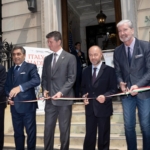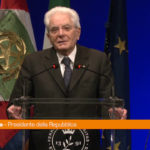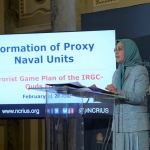The Iranian President Hassan Rouhani begins his tour in Europe from Italy. It is the first time after the lifting of the international sanctions against Iran. A sign of openness towards the West, it also shows Iran’s willingness to restore and strengthen its relationship with European countries, such as Italy.
[subscriptionform]
[level-european-affairs]
The Iranian leader’s trip to Italy has a triple meaning. From a political perspective, Rouhani’s visit comes at a significant moment both for Iran and for the Middle East. Indeed, the lifting of the international sanctions and the nuclear deal boost Iran relationship with the rest of the world, thus ending decades of political isolation. This gives also Teheran a chance to contribute to solving ME security problems.
Secondly, the religious dimension. The meeting between a Shiite Muslim leader and the highest representative of the Catholic Church, Pope Francis, is an important event in a time when the sectarian tensions and the increasing threat of Islamic terrorism make it difficult the coexistence between different faiths. In the Catholic Rome, Rouhani portraits the good side of Islam and the Vatican itself talks about “common spiritual values” and the importance of Iran for peace in the Middle East.
Final point on Rouhani’s agenda is economy. Seven institutional agreements have been signed, including an understanding between Mise and the Iranian Ministry of Industries and Mines. New business deals cover also energy and mining, constructions, shipbuilding and transport industries, reaching an amount of about 17 billion.
Despite criticism and controversies (as the one related to the covering up of naked statues in Capitoline Museum), Rouhani’s visit marks a relevant rapprochement between the Islamic Republic and Italy. An Italy that, while adhering to international sanctions, has maintained good relations with the Arab country, based -today as in the past- on mutual benefit.
Politically, strengthening ties with a European country means, for Iran, to be freed from the isolation of the past years and to project again the nation in the European and international environment. To be acknowledged a capillary role in restoring stability in the Middle East gives back legitimacy to a country that has been seen for decades as a threat to regional and global security. On the other hand, Italy acquires a vital ally in the fight against international terrorism and, by mediating the reintegration of Iran in world major fora, it can gain in terms of diplomatic influence.
Economically speaking, the lifting of the sanctions not only comes as a breath of fresh air for Iran, but it also paves the way for new investments in Italy. Iran has a young population, attracted by Western markets, especially those of luxury, car and fashion. Therefore, Iran can be an important partner to relaunch the “Made in Italy”.
However, what will be the reaction of the historic enemy of the Islamic Republic, Israel? Which repercussions could there be in the relationship between Italy and the Jewish country?
Historically, Italy has had good relations with Israel, based on cooperation in the political, economic, scientific, cultural and military areas. A promoter of the peace process in ME and of the creation of the State of Palestine, the Italian government has always worked in order to hinder the spread of anti-Semitism in the region and to facilitate the dialogue between Israel and the neighboring Arab states. The end of sanctions and the nuclear deal (with respect to which Israel has openly expressed his disagreement) have alarmed Netanyahu government about a possible resurgence of Iran. Seeing a traditionally friend state –as Italy- that strengthens its ties with the Islamic Republic, could actually create friction between Rome and Jerusalem.
The key factor in this balance may be the military element. The agreements signed between Rome and Tehran do not include the military sector, neither in terms of military capabilities nor of training. A similar low profile is presumably acceptable to Israel for a twofold reason. On the one hand, it does not affect Iranian military capacity; on the other, the actual opening to Iran is a positive sign for its allies (e.g. Russia). By contrast, a closing attitude towards Iran might stiffen the relationships between the West and Iran’s friends, thus undermining efforts to tackle other common threats, such as the Islamic State.
Hence, it is hard to believe that Italy could opt for an either-or option, which will exclude relations with one of the two countries in favor of the other. In his meeting with the Iranian president, Prime Minister Matteo Renzi has pointed out the importance of relations with Israel and the right/duty of the latter to exist as a State. Considering the interests at stake and Italian political traditions, it is more likely, therefore, that the government will opt for maintaining a balanced position: a strategic choice that ensures the benefits of trade with Iran without irritating Israel.
Paola Fratantoni
[/level-european-affairs]







